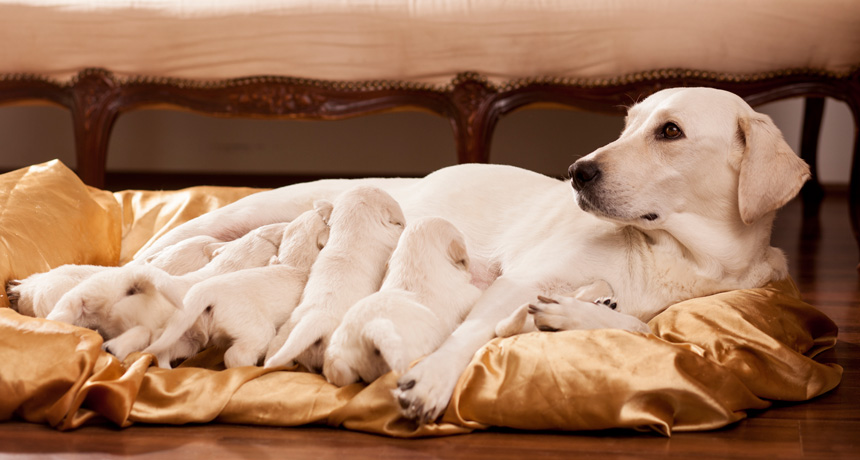Pregnancy in mammals evolved with help from roving DNA
'Jumping genes' changed uterus to stop laying eggs

HOLD THE EGGS Roving DNA helped program mammals like this dog to give birth to live young instead of laying eggs.
VladimirFLoyd/iStockphoto
'Jumping genes' changed uterus to stop laying eggs

HOLD THE EGGS Roving DNA helped program mammals like this dog to give birth to live young instead of laying eggs.
VladimirFLoyd/iStockphoto